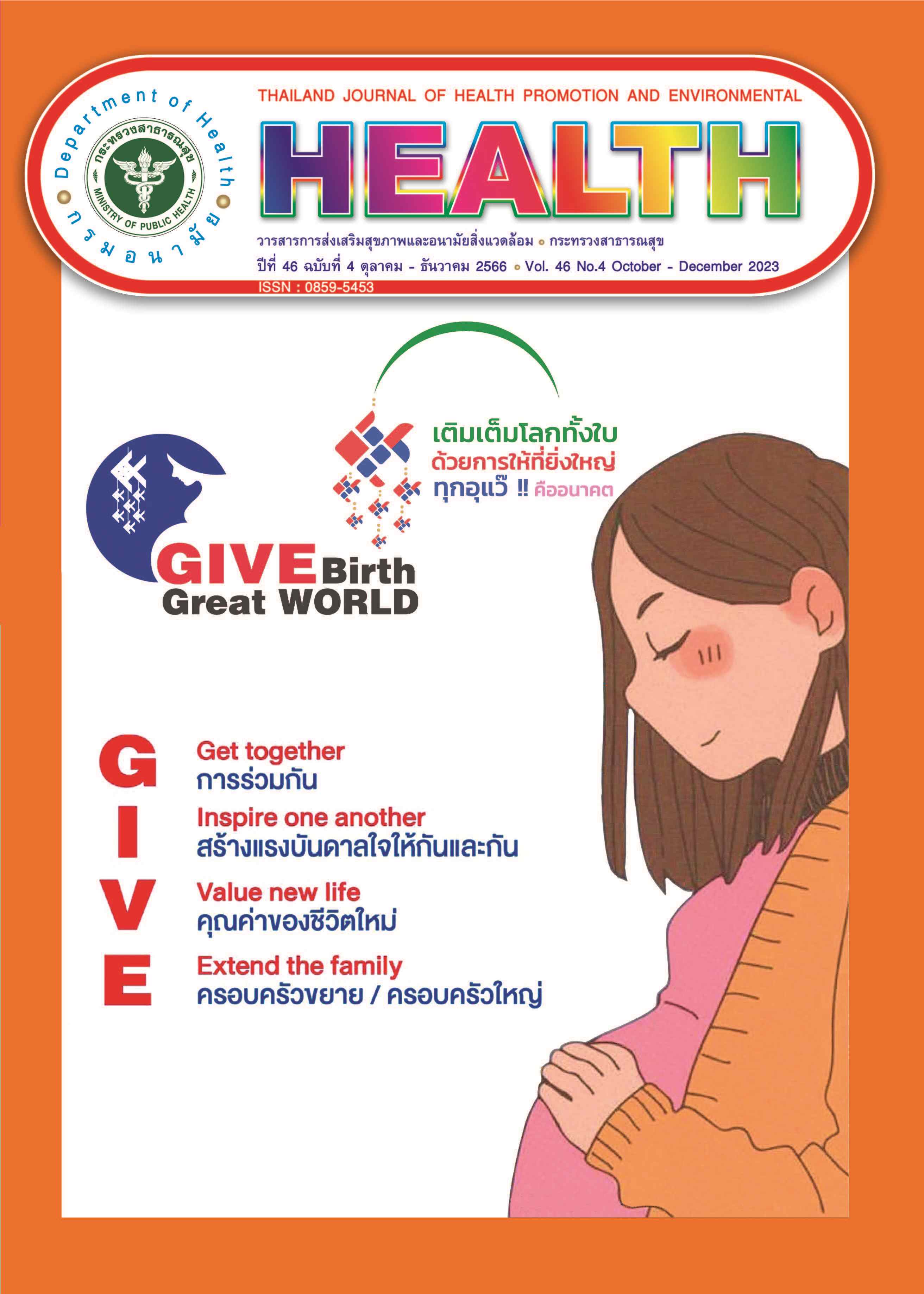Development of a family empowerment model to fiffiififight COVID-19 Bangyai District Nonthaburi Province
Keywords:
Outcomes of empowerment model, health literate family against COVID-19, family leaders, health promoting behaviors, COVID-19 preventive health behaviorsAbstract
This research was aimed to develop the Health Literate Family Empowerment Model against COVID-19 in order to appropriately apply into the family and community contexts. The targeted population in this study consisted of volunteer leaders from families and communities in Bang Yai District, Nonthaburi Province. The sample group was selected by using random sampling without replacement. Sub-district in which the study was conducted, and other compared Sub-districts were selected by using single-stage cluster sampling. Hence, Bang Muang Sub-district was selected in this study to conduct the study, and Bang Yai Sub-district was selected as a comparison area. Both areas showed no difference in the context, and the leaders, 35 per each Sub-district, agreed to participate in the project. The period of this study consists of 3 phrases, which are 1) Preparation phrase: design conceptual framework on the development of models, tools and guidelines, 2) Implementation phrase: implement and test the developed models along with 2 groups Quasi-Experimental Research by using the pre- and post-implementation assessment, and 3) Monitoring phrase: collect data from questionnaire and collect qualitative data from focus group and in-depth interview. Furthermore, the data analysis was proceeded with descriptive statistics and content analysis during October 2021 to December 2022. Results of the study: The first phrase of the Health Literate Family Empowerment Model against COVID-19 developed the Knowledge Package Guideline on Health Literate Family Empowerment Model against COVID-19 for leaders in family and community. The guideline is in E-book format which is easy to access and has Individual Wellness Family Plan as a tool to change health behavior. The second phrase was testing period and found that the sample group who received Health Literate Family Empowerment Model against COVID-19 got higher health promoting behavior and COVID-19 preventive behavior scores than before receiving the Model. Prior to the use of the Model, the average score was = 2.20, S.D.= 0.27. After the testing period, the average score was = 2.33, S.D. = 0.19, p-value <0.001, which showed statistically significant difference of .05. The sample group had a higher average score of health behavior than the comparison group at the average score of = 2.851, S.D.= 0.093, and the comparison group got an average score of = 2.362, S.D.= 0.218, p-value <0.001 which had statistically significant difference at .05 In the third phase, it was found that family and community leaders actively utilized knowledge, promoted continuous learning, and facilitated the integration of good health promotion through the active participation of families, communities, and local government organizations. Recommendations: The Health Literate Family Empowerment Model against COVID-19 was the model that consisted of the implementation framework, tools, and guidelines which provided benefits for the people, family, and community to become health literate citizen. Then, they can further conduct appropriate health behaviors which should be implemented continuously. Lastly, this Model should be defined or adopted as a policy in family health promotion.
Downloads
Published
Issue
Section
License
Copyright (c) 2023 Thailand journal of Health Promotion and Environmental Health

This work is licensed under a Creative Commons Attribution-NonCommercial-NoDerivatives 4.0 International License.

